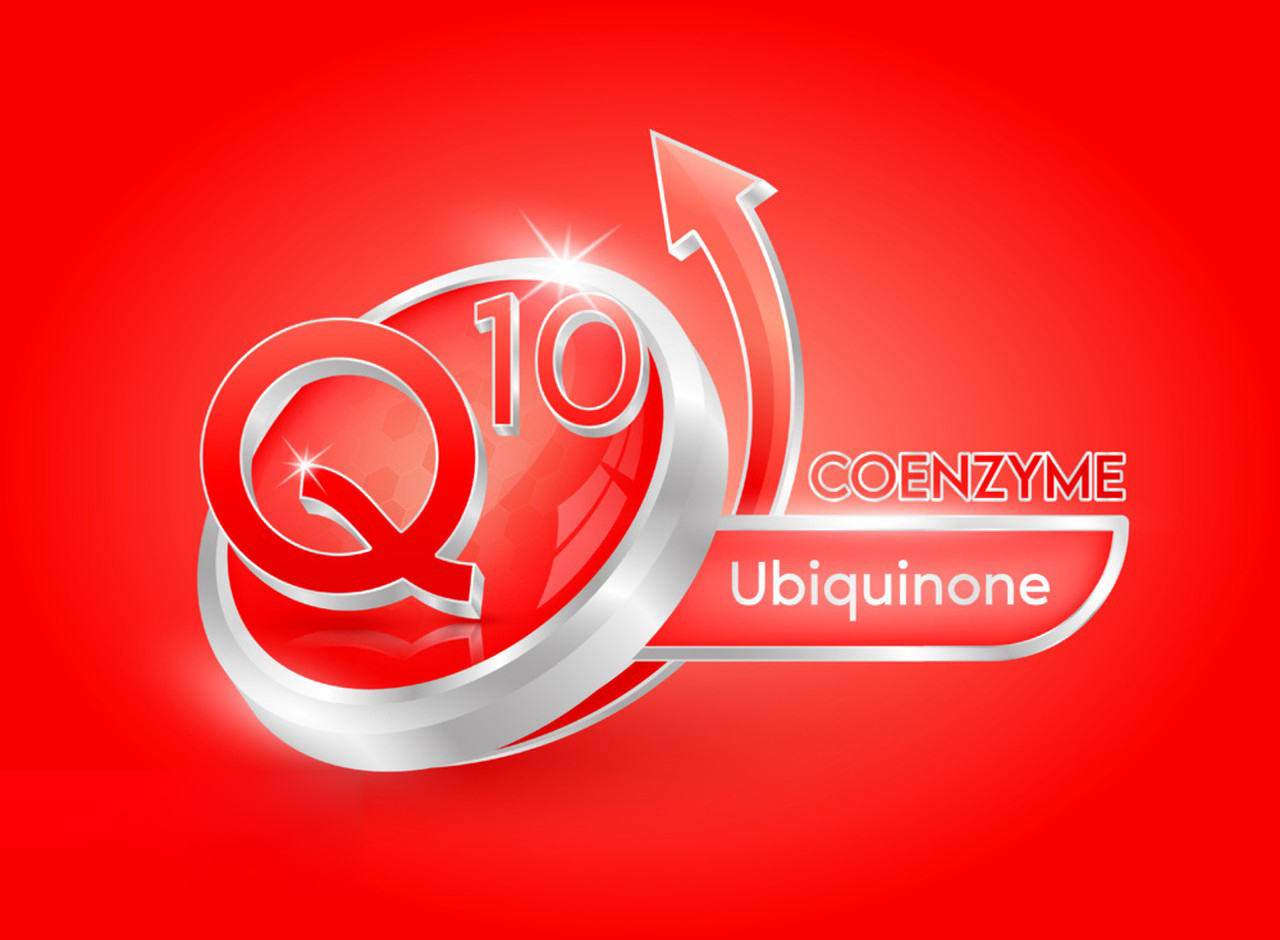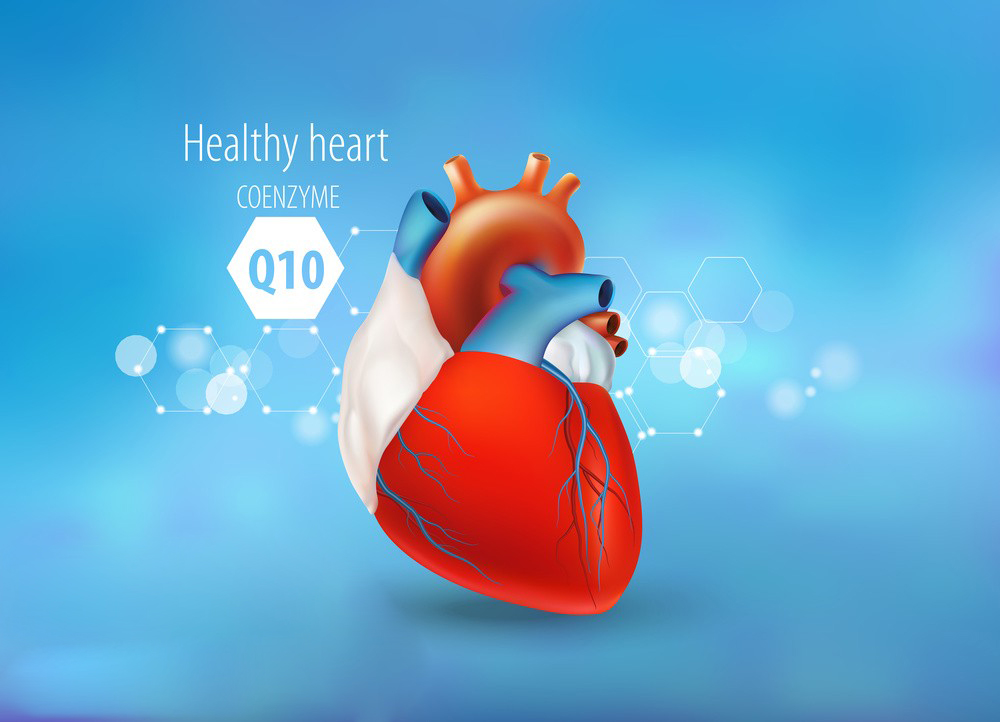Coenzyme Q10, often abbreviated as CoQ10 or ubiquinone, is a naturally occurring compound found in every cell of the human body. It plays a crucial role in the production of energy within cells and acts as an antioxidant, protecting cells from damage caused by free radicals. Coenzyme Q10 is synthesized in the body, but it can also be obtained through dietary sources or supplements.

Here’s an overview of the handling process of Coenzyme Q10 in the body:
Synthesis: The body produces Coenzyme Q10 naturally, primarily in the mitochondria, which are the energy-producing organelles within cells. The synthesis process involves several enzymes and chemical reactions, and it requires several vitamins and minerals, including vitamin B6, vitamin B12, folic acid, and various cofactors.
Dietary Sources: Coenzyme Q10 can also be obtained through the diet. It is found in small amounts in foods such as fatty fish (like salmon and tuna), organ meats (liver, heart, and kidney), whole grains, and some vegetables (spinach, broccoli, and cauliflower). However, the amount of Coenzyme Q10 obtained through dietary sources is relatively small compared to what the body produces.
Absorption: After ingestion through dietary sources or supplements, Coenzyme Q10 is absorbed in the small intestine. The absorption process may be enhanced when Coenzyme Q10 is taken with a small amount of dietary fat, as it is a fat-soluble compound.
Transport: Coenzyme Q10 is transported through the bloodstream to cells and tissues where it is needed. It is carried by lipoproteins, which are specialized proteins that transport lipids (fats) and fat-soluble compounds in the blood.
Cellular Utilization: Once inside the cells, Coenzyme Q10 plays a critical role in the electron transport chain, a series of chemical reactions that occur within the mitochondria. It acts as a cofactor for enzymes involved in the production of adenosine triphosphate (ATP), which is the primary energy currency of cells. Coenzyme Q10 helps transfer electrons within the mitochondrial membrane, facilitating the production of ATP.
Antioxidant Activity: Coenzyme Q10 also acts as an antioxidant. It helps protect cells from oxidative damage by neutralizing harmful free radicals. This antioxidant activity is essential for maintaining the integrity of cell membranes and DNA.
Recycling: Coenzyme Q10 can be recycled within the body. After it has participated in energy production or antioxidant processes, it can be regenerated and reused, extending its functional lifespan.
Excretion: Coenzyme Q10 that is no longer needed or has been damaged is eventually excreted from the body through urine and feces.
It’s important to note that Coenzyme Q10 levels may decrease with age and certain medical conditions, and supplementation may be recommended in such cases. However, before using Coenzyme Q10 supplements, it’s advisable to consult with a healthcare professional, as they can provide guidance on proper dosage and potential interactions with medications or other supplements.
Coenzyme Q10 pharmacological effects
Coenzyme Q10 (CoQ10), also known as ubiquinone, is a naturally occurring compound found in the cells of the body. It plays a vital role in the production of adenosine triphosphate (ATP), which is the primary energy source for cells. Coenzyme Q10 also has important antioxidant properties. Here are some of the pharmacological effects and potential health benefits associated with Coenzyme Q10:
Energy Production: Coenzyme Q10 is essential for the production of ATP in the mitochondria, the energy powerhouse of cells. It is involved in the electron transport chain, where it helps shuttle electrons and facilitate the generation of ATP. As a result, Coenzyme Q10 supplements are often used to boost energy levels and combat fatigue.
Antioxidant Properties: Coenzyme Q10 acts as a potent antioxidant, protecting cells from oxidative damage caused by free radicals. This antioxidant activity may help reduce the risk of chronic diseases and support overall health.
Heart Health: Coenzyme Q10 is particularly beneficial for heart health. It supports the proper functioning of the heart by helping to maintain the integrity of cardiac muscles, improving energy production in heart cells, and reducing oxidative stress. Coenzyme Q10 supplements are often used as part of a treatment plan for various heart conditions, including congestive heart failure and high blood pressure.
Statins and Muscle Health: Statin medications, which are commonly prescribed to lower cholesterol levels, can deplete Coenzyme Q10 levels in the body. Supplementation with Coenzyme Q10 may help alleviate some of the muscle-related side effects associated with statin use, such as muscle pain and weakness.
Migraine Prevention: Some studies suggest that Coenzyme Q10 supplementation may reduce the frequency and severity of migraine headaches. It is believed to have a neuroprotective effect and may help improve mitochondrial function in brain cells.
Anti-Aging: Coenzyme Q10’s antioxidant properties may help combat signs of aging, such as wrinkles and skin damage, by reducing oxidative stress in the skin.

Immune Support: Coenzyme Q10 can also support the immune system by enhancing the body’s defense against infections and providing energy for immune cells.
Neurological Disorders: There is ongoing research into the potential use of Coenzyme Q10 in the treatment of neurodegenerative disorders like Parkinson’s disease and Alzheimer’s disease. Coenzyme Q10’s role in energy production and its antioxidant properties may have neuroprotective effects.
Diabetes: Coenzyme Q10 supplementation has shown promise in improving insulin sensitivity and glycemic control in people with diabetes, although more research is needed in this area.
Fertility: Coenzyme Q10 may support male and female fertility by improving sperm quality in men and enhancing egg quality in women. It is often used as a supplement for individuals undergoing fertility treatments.
It’s important to note that while Coenzyme Q10 is generally considered safe when taken at recommended doses, it can interact with certain medications and medical conditions. Always consult with a healthcare professional before starting any new supplement regimen, especially if you have underlying health concerns or are taking prescription medications. The appropriate dosage of Coenzyme Q10 can vary depending on the individual and their specific health needs.
